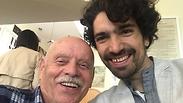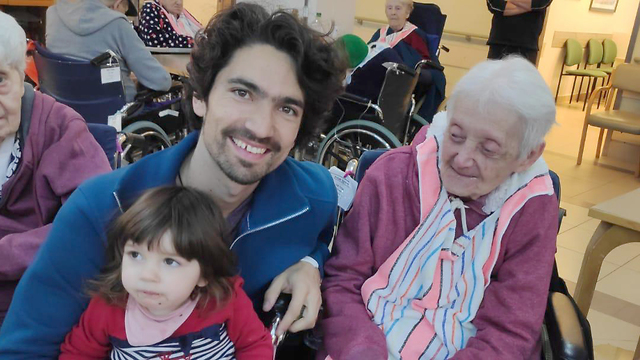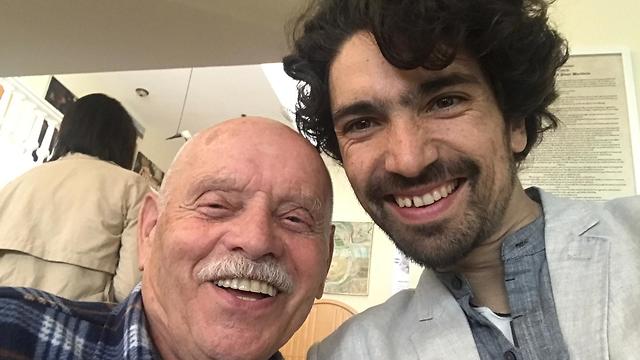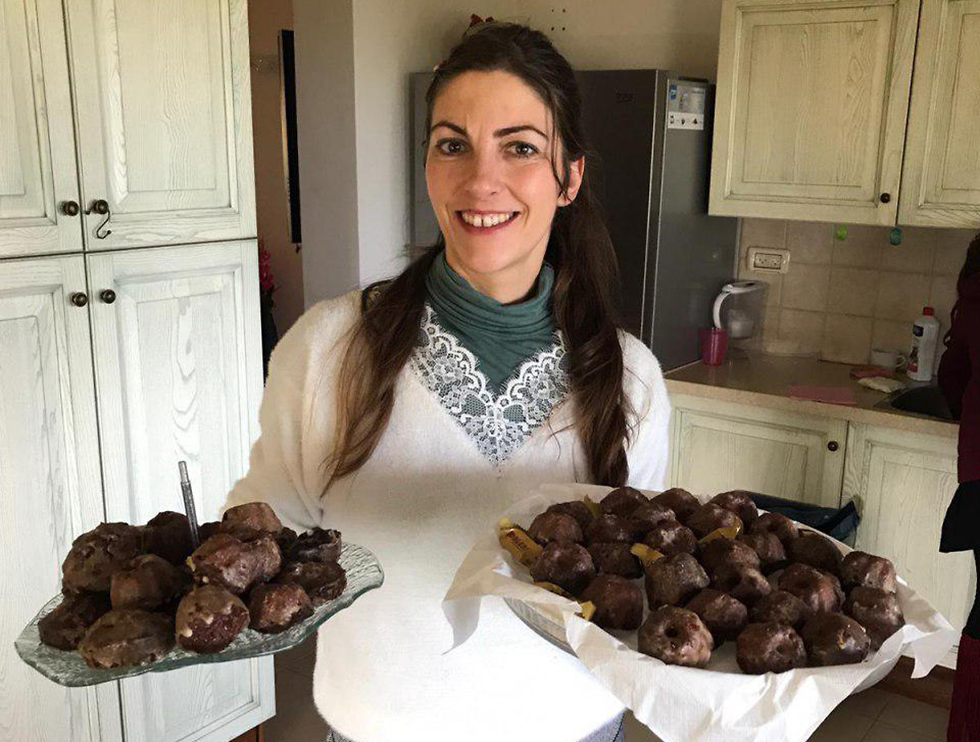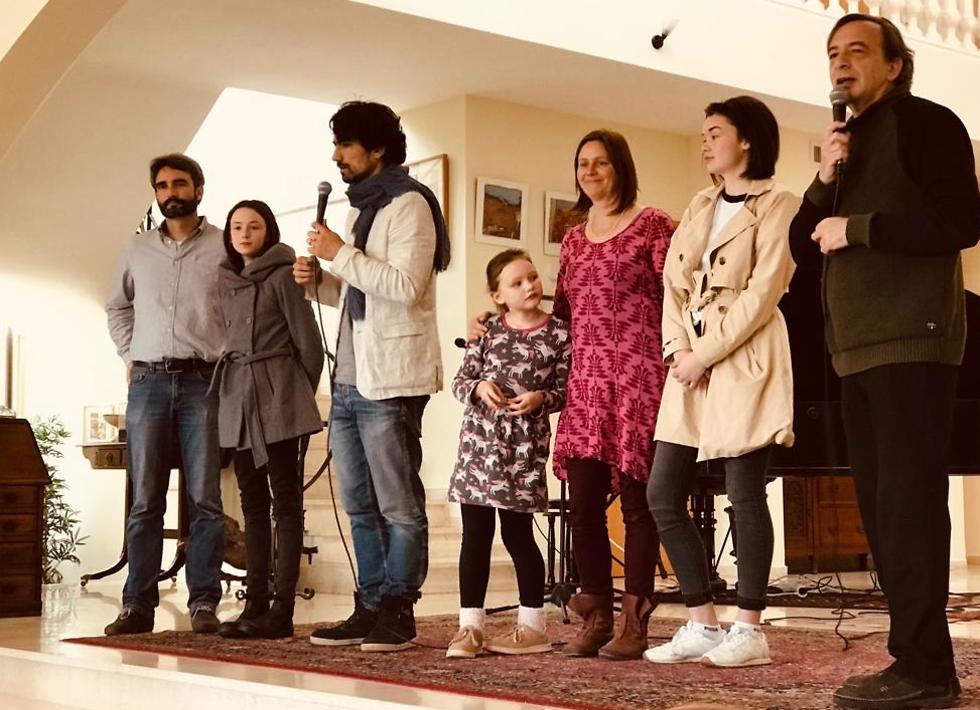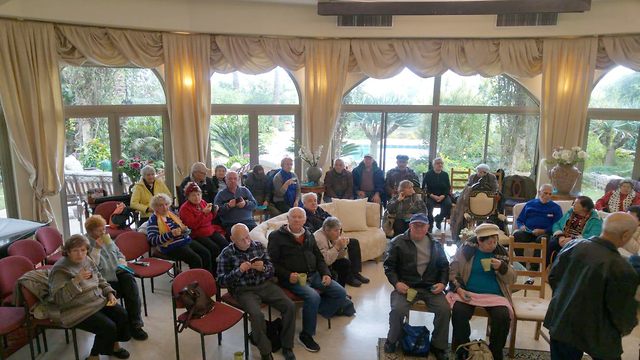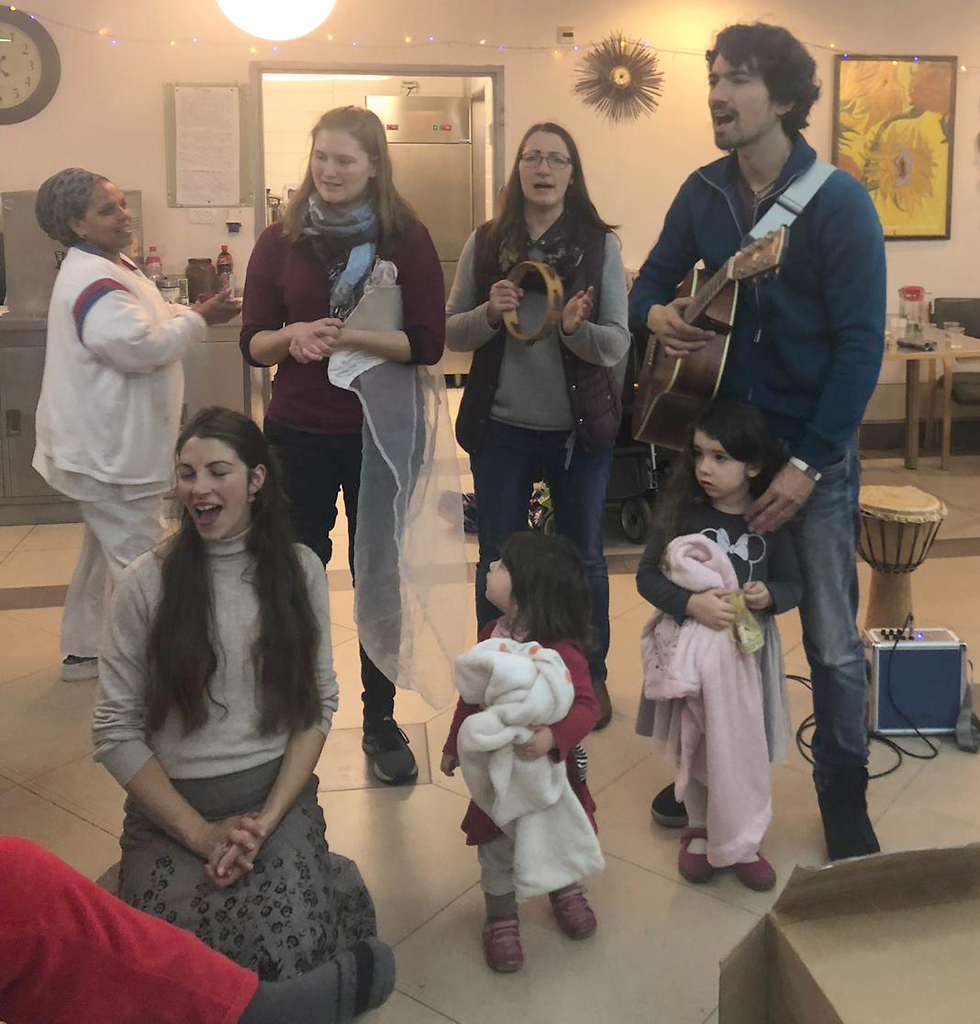Alex Dietze, 39, grew up in a Christian home in Germany where no one mentioned the Second World War, let alone the Holocaust. Alex mainly knew of the war from history classes at school, books and films. But on his 28th birthday something changed.
“My grandfather came to me and wanted to give me as a gift the Nazi war medal he earned for his contribution to the war effort,” Dietze told Ynet. “I was in shock. Previously for me, the Holocaust was a matter of general history and not something personal. I could not believe that my grandfather was among those who took part in the greatest tragedy of the 20th century. My world turned upside down.”
Alex felt that he had to do something. “As a Christian, I suddenly understood that the roots of anti-Semitism come from Christianity, and that my whole life has been one of hypocrisy. On the one hand, the priests preach love and acceptance and on the other hand, they did not act to prevent the devastation" of the Holocaust, he said.
“I became interested in the Holocaust and subsequently the State of Israel, and to my astonishment I discovered that hundreds of thousands of Holocaust survivors live there,” he continued. “My wife Cecilia and I became curious to meet these people. As Germans, we understood that we need to make amends and go to Israel. We had our honeymoon there and we fell in love with the country.”
Alex, a physiotherapist, and Cecilia, a social worker, both worked with elderly Germans, most of whom participated in World War II. Working with Holocaust survivors in Israel was therefore a natural step for them. They joined the Volunteers in Israel project (VOIS) run by the Israeli Ministry of Labor, Social Affairs and Social Services. Some 1,000 volunteers from 45 countries around the world take part in the project and work with the elderly, Holocaust survivors, children and adults with mental or motor disabilities, autistic children and children at risk.
Some 300 volunteers come from Germany, with the support of their local government, as part of their national service. Most of them choose to work with Holocaust survivors. Those who tell of relatives who participated in war crimes feel that their volunteering in Israel is a way to make amends between the two nations. Special relationships develop from these encounters, especially when survivors and their families host volunteers for Shabbat and holiday meals.
“My wife and I understood that if we wanted to change something in this world it must come from us,” Alex said. “We sought out humanitarian organizations that help people who want to volunteer in Israel and we came upon Yad Efrat, which connected us to survivors, and we began our volunteering in Zichron Yaakov. It was a cathartic experience for both of us and our first daughter was born here.”
The couple returned to Germany but felt that their volunteering was the most meaningful thing in their lives and sought to return. “Two months ago we returned to volunteer with Holocaust survivors in Israel. Currently we are in Tiberias and live in Poria Ilit. Our two daughters love being in Israel and every time we return to Germany we talk with friends and share our experiences on Facebook… We feel that we are helping to change the perception of Jews and also reduce the level of anti-Semitism that is so structured in Germany, at least among the previous generation."
Sofia, 78, is one of the survivors with whom Alex and Cecilia volunteer. She was born in Ukraine and as a baby and a little girl during the Holocaust, she survived by being smuggled from place to place. She immigrated to Israel from Latvia in 1991, and says the German volunteers make her very happy. "They give me health and beauty, when I'm told they're coming, I feel 25 years younger. It's like it's cold and suddenly it's warm, it's so good. The older the person is, the more vulnerable they are and can use a good word. Their good warms us; they are surely messengers of God. Their children see the good that they do and perhaps they will carry on this good, not towards Holocaust survivors but to other people who will need it."
Maria, 90, another Holocaust survivor with whom the two volunteer, adds: "The volunteers are a source of happiness for us, they give us so much attention, we found a common language and they helped me in all areas of life… We are very old and we thank all the German people for the great happiness we have from the relationship with them."
The volunteers assist in interpersonal communication, support the therapeutic staff, community support, participation in trips, workshops and more. In their work, they enable a warmer personal relationship for each patient and bring with them a young and happy spirit. They do not replace the staff of the Ministry of Social Affairs, but instead add to and support the existing staff.
Volunteering lasts from six months to a year and takes place in various frameworks (hostels, day centers, retirement homes and community centers). Today, there are 94 such frameworks throughout the country. The volunteers are 18 years of age and older, and even couples, families and pensioners participate. They work 35 hours a week and receive housing, food, laundry services, pocket money and professional support.
